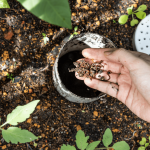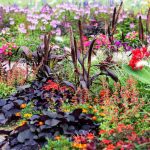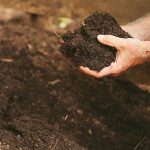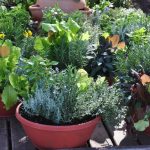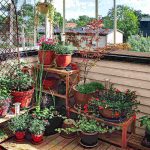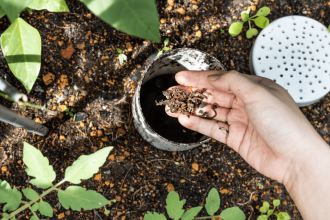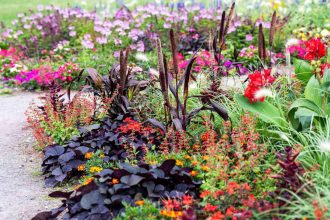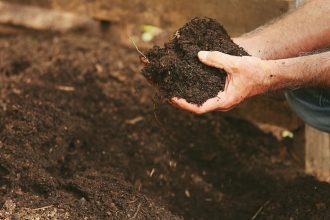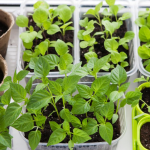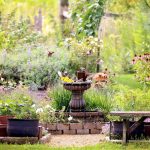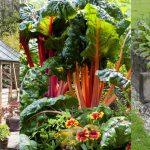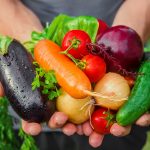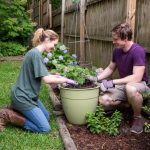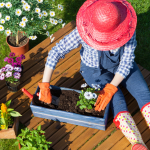Embarking on the journey of organic gardening is like stepping into a world where nature takes center stage and every seed planted is a promise of a bountiful harvest. For beginners looking to dip their toes into the world of sustainable and eco-friendly gardening, there is a wealth of tips and tricks to help navigate this green oasis. From soil health to pest management, this guide will provide the essential knowledge needed to kickstart your organic gardening adventure. So, grab your gloves and trowel, and let’s dig in!

Ready to start your organic gardening journey? Here are some helpful tips and tricks to get you started:
1. Choose the right location: Select a spot in your yard that receives plenty of sunlight and has good drainage. This will help your plants thrive and grow strong.
2. Start with the right soil: Invest in high-quality organic soil that is rich in nutrients. Adding compost to your soil can also help improve its quality.
3. Choose the right plants: Select plants that are well-suited to your climate and soil conditions. Consider starting with easy-to-grow vegetables like tomatoes, lettuce, and peppers.
4. Use natural pest control methods: Avoid using harsh chemicals on your plants. Instead, try natural solutions like neem oil, garlic spray, or companion planting to keep pests at bay.
| Vegetable | Best Growing Season |
|---|---|
| Tomatoes | Spring/Summer |
| Lettuce | Spring/Fall |
| Peppers | Summer |
Getting started with organic gardening: Step-by-step guide for beginners
Are you ready to dive into the world of organic gardening but don’t know where to start? Look no further! This step-by-step guide will walk you through the basics of getting your hands dirty and growing your own organic fruits, vegetables, and herbs.
Before you begin, it’s essential to choose the right location for your garden. Look for an area that receives at least 6-8 hours of sunlight per day and has well-draining soil. Once you’ve found the perfect spot, it’s time to prepare the soil. Start by removing any weeds and improving the soil structure with organic matter such as compost or aged manure.
Next, select the plants you want to grow in your garden. Consider starting with easy-to-grow options like tomatoes, lettuce, or herbs. Purchase organic seeds or seedlings from a reputable source to ensure the health of your plants. When planting, make sure to space them according to their specific requirements to allow for proper growth.
To maintain a healthy garden, it’s crucial to water regularly, mulch to retain moisture, and monitor for pests and diseases. Consider using natural remedies like neem oil or introducing beneficial insects to keep your garden thriving. With a little patience and dedication, you’ll be enjoying the fruits of your labor in no time!
Choosing the right plants for your organic garden: Tips on what to consider
When it comes to starting your own organic garden, choosing the right plants is crucial for success. Consider the following tips to ensure your garden thrives:
- Climate and soil conditions: Select plants that are well-suited to your local climate and soil type to maximize growth and yield.
- Native plants: Opt for native plants that are naturally adapted to your region, making them more resistant to pests and diseases.
- Companion planting: Pair plants that benefit each other in terms of growth, pest control, and soil nutrition to create a harmonious and thriving garden ecosystem.
- Disease resistance: Choose plant varieties that are known for their disease resistance to reduce the need for chemical pesticides.
In addition to these considerations, it’s essential to also think about your personal preferences and gardening goals. Whether you’re interested in growing herbs, vegetables, flowers, or fruits, there are plenty of organic plant options available. By carefully selecting the right plants for your organic garden, you can enjoy a bountiful harvest while supporting a healthy and sustainable environment.
| Plant | Best for |
|---|---|
| Tomatoes | Vegetable gardens |
| Lavender | Herb gardens |
| Sunflowers | Flower gardens |
| Strawberries | Fruit gardens |
Creating a thriving garden ecosystem: Tricks for maintaining healthy soil and natural pest control
One of the key aspects of organic gardening is maintaining a thriving garden ecosystem. By focusing on healthy soil and natural pest control methods, you can create a sustainable garden that flourishes without the need for harmful chemicals.
Healthy Soil Tips
- Use compost to enrich the soil with nutrients
- Rotate crops to prevent soil depletion
- Avoid tilling too frequently to preserve soil structure
Natural Pest Control Tricks
- Encourage beneficial insects like ladybugs and lacewings
- Plant companion crops that repel pests, such as marigolds and basil
- Handpick larger pests like caterpillars and slugs
| Beneficial Insects | Plants that Repel Pests |
|---|---|
| Ladybugs | Marigolds |
| Lacewings | Basil |
Harvesting your organic bounty: Recommendations for preserving and enjoying your homegrown produce
Once you have successfully grown and harvested your organic bounty, it’s time to think about how to preserve and enjoy your homegrown produce to the fullest. Here are some recommendations to help you make the most out of your hard work in the garden:
- Canning: Canning is a great way to preserve fruits and vegetables for long term storage. Invest in a water bath canner or pressure canner to safely preserve your produce.
- Freezing: Freezing is another popular method for preserving fruits and vegetables. Blanche your produce before freezing to preserve the flavor and texture.
- Drying: Drying herbs, fruits, and vegetables is a simple and effective way to preserve your harvest. Invest in a dehydrator or use the sun to dry your produce naturally.
- Fermenting: Fermenting is a great way to preserve and enhance the flavor of your produce. Try making your own sauerkraut, kimchi, or pickles for a delicious and probiotic-rich treat.
| Produce | Preservation Method |
|---|---|
| Tomatoes | Canning |
| Herbs | Drying |
| Berries | Freezing |
Embarking on your organic gardening journey as a beginner may seem daunting at first, but with the right tips and tricks, you’ll soon be cultivating a vibrant and thriving garden full of healthy and sustainable produce. By incorporating practices such as composting, companion planting, and natural pest control methods, you’ll not only be creating a beautiful garden, but also contributing to the health of the environment. So grab your gardening gloves and get ready to dig in – your journey to becoming an organic gardening pro starts now! Happy gardening!


